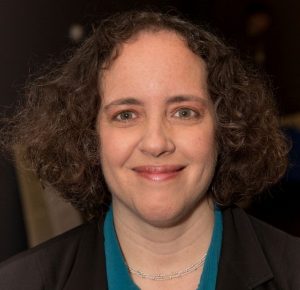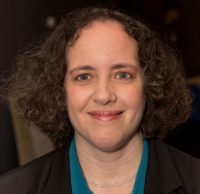Social Justice in Their Judaism
The Jewish Alliance for Law and Social Action (JALSA) asks people to act on their Jewish values in the pursuit 
- Wisdom/Chochma
JALSA gives people the structure to live Torah, whether they recognize it or not, whether they care to trace it back to text or not. Our values statement is on the front page of our strategic plan and we cite several well-known Biblical social justice quotes like: protect the stranger; we are all created in the image of God; etc. For some of our members, these are deeply felt statements, learned as children in Hebrew School. For others, this may be the first time they are hearing that there is actually a textual basis for why we care about repairing the world as Jews. For our organization, however, our stake in the ground is that we are living our values, authentically practicing what it means to be Jewish in the 21st century.
While the connection to spirituality is of varying importance for our participants, it is interesting to note that we do have a large group of people involved who do not belong to any other Jewish organization or spiritual community. I have heard people say that JALSA is their temple. Their work for social justice is their Judaism, and that is how they see themselves living an authentic Jewish life.
There is something of a divide in our membership, which creates a dilemma for the future direction of JALSA. For some, they want nothing to do with deeper Jewish learning and connection. For others, there is huge curiosity about how our ancient texts have led us to a rally for $15 an hour, for example. Deciding how much to lean into our Jewish heritage, how much Jewish education to provide, is an ongoing and difficult question for JALSA.
2. Social Justice/Tzedek
This section is obvious for JALSA. We exist to pursue social justice based on Jewish values. When we ask the question about our unique value added, what would happen if JALSA didn’t exist, the answer is that our volunteers would likely find other ways to be involved in progressive social justice efforts. For many of those people, there would be secular organizations like the ACLU. For others, they might direct some energy into their temples, although there they might find more options for direct service than public policy advocacy. But, for getting involved in a very broad public policy agenda with Jewish values at its core, there would likely be no fulfilling substitute for JALSA.
In an increasingly secular world, why then do people choose to do their social justice work through JALSA? Why is there even a need for a particularly Jewish social justice voice anymore? In all honestly, for some people it doesn’t really matter. We are a well-organized, welcoming group that does effective work and that’s what matters to them. But, for others, the first word in our name is “Jewish” and that is a very powerful draw. The underlying faith values are of importance. The notion that it is the Jewish community standing up for those being discriminated against matters. There is no judgement about whether people belong to a synagogue or a JCC or even believe in God. Here is a place where people can say that the pursuit of justice right here, right now, is what makes them Jewish and what will keep them tied to the Jewish community.
3. Community/Kehilla
Synagogues are not the only place people can find Jewish community. At JALSA, Jews are creating for themselves a Jewish community based on social justice. Let me provide two examples here.
First is JALSA’s adoption of community organizing techniques as one of the tools in our toolbox. When we were first formed, we were a traditional advocacy organization. The executive director and a small group of members determined our priorities and she would go to the State House to lobby members of the legislature or our members would write amicus briefs. There was little direct involvement of our members beyond that. Times changed, however, and people wanted to be on the frontlines of public policy change. We started hiring JOIN Fellows, trained in community organizing techniques, which demanded that there be membership involvement from the bottom up. This led to our creating action teams, which have become their own sub-communities, meeting under the guise of developing our public policy priorities, but also bringing together people in community based on their Jewish values.
My second example is our Tzedek Salons, created by and for people in their 20’s and 30’s, who wanted to gather together in a Jewish setting to learn about public policy issues. Held in bars, combined with a social element, over 400 people have now been to a Tzedek Salon over the past six years. This has provided a pipeline for JALSA leadership and now approximately 25% of our board is aged 40 or younger. The Salons have created a community of their own, bringing together young people who want to acknowledge their Judaism and see how they can put it into action. These events have proven so successful that our older members are “jealous” of them, and have now asked JALSA to create Community Salons so that people of all ages can take part in events that combine our mission with community building.
4. Lives of Sacred Purpose/Kedusha
While in some ways this seems like the least likely proposition for JALSA, I also find that it relates to our work. We don’t provide pre-school or yoga or any of the other secular type services which people are seeking outside the Jewish community. But I have been surprised about what we have been “paid” to do. JALSA has developed a reputation for getting things done in social justice and having a unique reach into the Jewish community when it comes to organizing and activism. As just one example, we are on the Steering Committee of Raise Up Massachusetts, the coalition of over 150 community, labor, and faith groups which won the $15 an hour minimum wage, paid family and medical leave and earned sick time for all MA workers. This year, Raise Up saw the potential in JALSA and provided us with a “grant” to support our community organizers taking charge of a region in the state, the equivalent of other secular organizers that were hired for this purpose.
Beyond the Four Propositions
Since the election of Trump, there has been a call for us to take a stand as Jews in the political space, and to say that we will not watch as the President encourages anti-Semitism, bigotry, and racism. JALSA formed a related 501dc4 organization, JALSA Impact, so that we could give voice to these more political concerns as Jews. JALSA Impact took part in the mid-term elections, targeting 5 Flip the House races across the country, with 100 volunteers making over 4500 phone calls to New York Florida, Iowa, Texas, and North Carolina. While JALSA Impact combines many of the above themes, the need to be active politically as Jews cuts across generations and is a need that we felt had to be met through a new framework.
_______
Cindy Rowe is the Executive Director of JALSA and JALSA Impact. Prior to starting this position a year ago, she was the principal of an consulting practice which worked with over 60 non-profits in Massachusetts to advise them on fundraising, volunteer management, and public policy campaigns. She serves as Social Justice Community Chair at Temple Israel/Boston and was a member of the URJ’s Commission on Social Action for many years.


